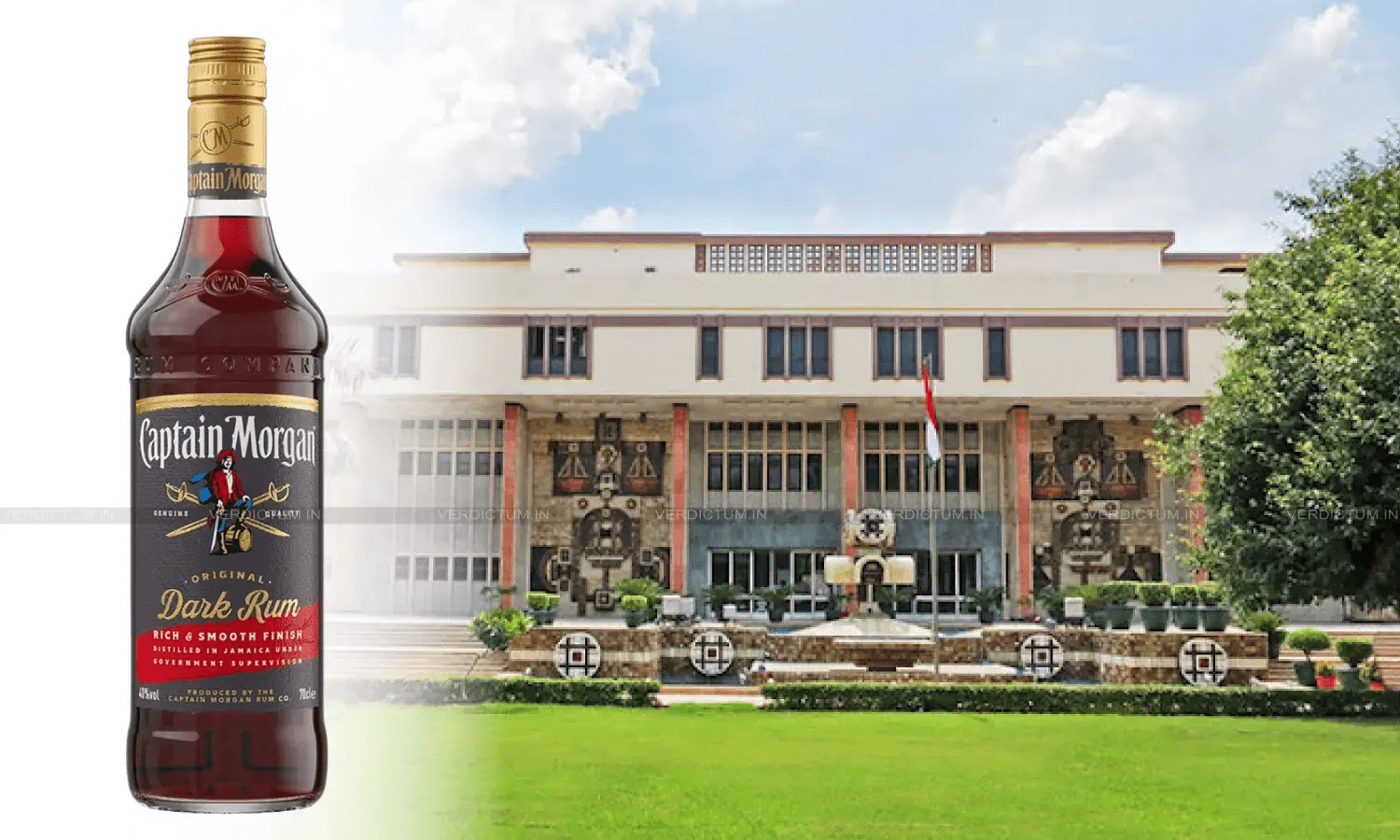0761-8523-398
KLLG St, No.99, Pku City, ID 28289
“Captain Morgan vs. Captain Blue: Key Takeaways from the Delhi High Court’s Trademark Verdict”.

“Captain Morgan vs. Captain Blue: Key Takeaways from the Delhi High Court’s Trademark Verdict”.
Introduction
Captain Morgan vs. Captain Blue:- In a significant development for the Indian intellectual property landscape, the Delhi High Court recently ruled in favor of Captain Morgan, the well-known alcoholic beverage brand, against a competing brand named Captain Blue. This decision emphasizes the importance of trademark protection, brand identity, and the consequences of trademark infringement.
As a leading intellectual property law firm, SR4IPR Partners believes this ruling sets a crucial precedent for brands across sectors. In this blog, we break down the case and share key takeaways to help businesses better understand the value of trademark registration and enforcement.
Background of the Case
Captain Morgan, a globally recognized rum brand owned by Diageo, filed a suit alleging that the use of the name “Captain Blue” by a competing product infringed upon their registered trademark. The plaintiff argued that the visual similarity, use of the word “Captain”, and market positioning of the defendant’s product created a likelihood of consumer confusion.
The defendants, in contrast, claimed that “Captain” is a generic term and should not be monopolized by any single entity. However, the court found merit in the argument that the defendant was riding on the reputation of an established brand.
Delhi High Court’s Verdict
The Delhi High Court sided with Captain Morgan, ordering the removal of the Captain Blue trademark from the market. The court concluded that:
The term “Captain” used in conjunction with alcoholic beverages has acquired distinctiveness through extensive and exclusive use by Captain Morgan.
The similarity between the names was not coincidental, and the branding could mislead consumers.
The trademark infringement was deliberate and had the potential to dilute the brand’s identity.
This ruling further strengthens the legal framework around trademark rights in India and reinforces the importance of distinctive branding.
Why This Case Matters
Overall, this case is a textbook example of how trademark registration and enforcement play a critical role in protecting brand identity. In particular, it highlights the importance of securing legal rights early in a brand’s journey. For businesses across industries, it not only serves as a reminder but also acts as a strong cautionary tale—emphasizing that choosing brand names should always involve thorough trademark clearance searches. Furthermore, seeking professional legal advice during the brand development phase can help avoid future disputes, financial setbacks, and reputational damage. Ultimately, a proactive approach to trademark protection lays the foundation for long-term success and market credibility.
Here’s why the ruling is significant:
Protection of Established Brands: The court acknowledged the commercial value and reputation built by the Captain Morgan brand, protecting its goodwill from exploitation.
Clarity on Generic Terms: Even though “Captain” is a common word, when associated with a specific product and brand, it can gain trademark significance.
Reaffirmation of Trademark Laws: The decision reinforces that trademark infringement goes beyond identical matches—it includes any similarity likely to cause consumer confusion.
Key Takeaways for Indian Brands
1. Secure Your Trademark Early
Filing for trademark registration at an early stage gives your brand legal recognition and exclusive usage rights. At SR4IPR Partners, we advise startups and growing businesses to protect their intellectual property from day one.
2. Conduct a Comprehensive Trademark Search
Before finalizing your brand name, always conduct a trademark availability check. This can help avoid future legal issues and costly rebranding exercises.
3. Monitor and Enforce Your Rights
Owning a trademark isn’t enough—you must monitor the marketplace for possible infringements and be ready to enforce your rights legally.
4. Brand Identity Is a Valuable Asset
A well-established brand is an intangible asset. Protecting it through legal channels ensures long-term business sustainability and consumer trust.
How SR4IPR Partners Can Help
At SR4IPR Partners, we specialize in trademark filing, trademark opposition, infringement analysis, and litigation support. Our legal experts work with businesses to:
Conduct in-depth trademark searches
File trademark applications
Handle trademark objections
Represent clients in trademark disputes and litigation
With over a decade of experience and a client base that spans across industries, we are committed to helping brands protect what’s uniquely theirs.
Conclusion
The Captain Morgan vs. Captain Blue case clearly illustrates that intellectual property protection is no longer optional—it’s absolutely essential. In today’s dynamic and highly competitive market environment, where brand visibility and consumer trust are paramount, businesses must be more proactive than ever in safeguarding their trademark rights.
Moreover, this verdict delivers a powerful message to businesses and brand owners alike. It underscores that the Indian judiciary not only values but actively enforces brand exclusivity, even in situations involving descriptive or commonly used words. As long as a brand has established a distinct identity and market presence, the courts are prepared to recognize and protect that uniqueness.
Therefore, this case serves as both a warning and a guidepost, reminding companies that neglecting trademark protection can lead to legal vulnerability, while timely action and strategic enforcement can secure long-term brand strength.


